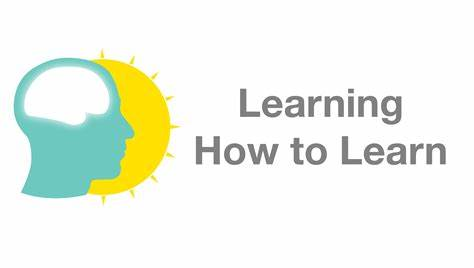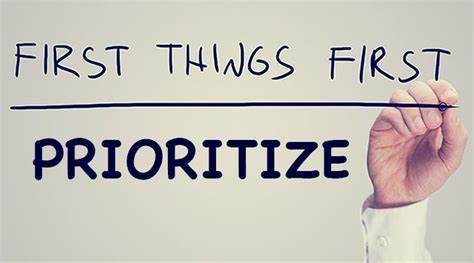We all have dreams and aspirations,
especially when we are young. Be it an early retirement or palatial home or big
cars. Unfortunately, most of us find us difficult to reach these dreams and
have to either give up on grand dreams and set realistic ones or wait till you
become too old to afford it. There are only two ways to ensure that you change
this. First, earn enough money which may or may not be possible for everyone.
Second, walk the easier but the longer path of saving & investing.
One of the important pillars of
financial wellbeing is proper financial planning. Financial wellbeing is simply
where you have more than what you need, and the extra is invested for an even
better future. Often, we complicate wealth creation much more than needed. At
risk of repetition, we dare say again that we have to go back to the same
age-old principles of investing and wealth creation. They are timeless, simple
and yet, very easily forgotten. There are still people out there who have
dreams and aspirations but do not follow these critical and life changing rules
for wealth creation. In this article, we present the seven rules of wealth
creation
1. Time is of essence:
Starting
early is half work done. The best time to start investing was when you got your
first pay cheque. The next best time was not today, but yesterday! There is no
tomorrow, you have got to do it today if you are serious. We all know about the
power of time and the power of compounding which can do wonders. But unless you
don't start early or asap, the end date for the wonder to unfold will be too
late. We have to get time on our side else, we would have to work doubly hard
to make up for the lost time.
2. Saving aggressively matters:
Give a
5-year-old child her favourite ice-cream and ask here if she wants to eat it
now or give it back and have two the next month. What will she do? Often, we
are no less than that 5-year-old kid when it comes to choosing between instant
vs delayed gratification. We cut corners here and there to buy things we don't
need to show off before people whom we don't like. Frugality and minimalism and
the in words today. Instead of spending on riches & luxury, it's always
better to spend on upgrading yourself, learning, setting up side-business and
save /invest in appreciating assets at the very least. The more focussed and
aggressive you are today and the more you enjoy the journey, the sooner will
you reach your destination.
3. Asset Allocation, is the key:
We
often cannot see the forest for the trees. We lose sight of the big picture and
spend more of our time in knowing which fund will perform the best, which is
the next big multi-bagger, how my funds have performed, and so on. How does it
matter even if your fund level performance if plus or minus a few percentages
when it occupies only a fraction of your portfolio? Shouldn't we really see the
big picture? A typical household in India today has huge exposure to real
estate and gold, occupying almost half of all the wealth. The other half is in
financial assets where again bank deposits, government small saving plans,
insurance investments, etc garner a large share. The lowest exposures are to
equities and mutual funds - the products which are crucial to exponential
wealth creation over the long term. What we are only suggesting is that
everyone should have a well-balanced portfolio with the right exposure to
equity asset class as per the risk profile & returns expectations. This
will have to be revisited and portfolio rebalanced from time to time,
periodically and market event driven.
4. Emotions need to be tamed:
Many
studies have found that equity markets have delivered very attractive returns
over the long term, outperforming other asset classes. This is in spite of all
wars, events, crisis, pandemics, etc, etc. However, investors have rarely made
those kinds of returns. And the reason is exactly these temporary aberrations
which tested the conviction of investors and most investors unfortunately
failed. Warren Buffett once said "If you cannot control your emotions, you
cannot control your money." Our emotions and our behavioural biases often
cloud our decisions and instead of acting rationally and against the herd
mentality, we become part of the herd. We enter markets when it is late and
exit early. With all the noise around us and all the easy information
available, we try to time markets and make 'smart' decisions, when perhaps,
even getting stranding on a lonely island without a mobile network would have
proved to be financially more profitable! Remember, even refusing to do
anything is doing something.
5. Diversification helps, but only to
that extent:
We all
know that diversification reduces the overall risk of your portfolio. The
guiding principle is that not all assets will behave the same at the same time
as they would carry different set of risks and return factors. Diversification
at the broad level is required also so that you can play that asset allocation
game properly and as per a set strategy which can be executed on an ongoing,
periodic basis. However, too much diversification into too many asset classes,
products, etc would also mean that a lot of underperforming assets sneak into
your portfolio. You can't really make good money betting on all horses in a
race. Some experts are also of the extreme view that you diversify if you don't
really know what you are doing. So it is a matter of the optimum balance, the
right mix of a few important things. One may zero it down to say equity, debt
and physical asset classes and have exposure to select financial products
/securities within these asset classes and again some limited diversification
w.r.t. fund categories, AMC, market-cap, sectors, duration /time to maturity,
underlying instruments, etc within these products.
6. Don't miss out on wealth
preservation /protection:
All it
takes to wipe out your wealth, is one unfortunate moment, event in a lifetime.
We have seen many cases around us where families have been pushed back on years
of progress in life by a tragedy, by business losses, by court cases, by
crimes, accidents and so on. We can't really control what can happen in life,
although we can be careful. However, we can certainly control the financial
repercussions originating from such events such that our financial well-being
is not compromised and we are not left at the mercy of fate. Having proper
insurance, is one sure shot way of minimising financial losses and suffering.
There are many products out there, both personal and non-personal out there
which can protect us financially. Explore products related to life, health,
personal accident, critical illness, home, motor, fire, travel, shopkeepers',
professional indemnity, etc to minimise your financial suffering. The other way
to minimise financial risks in life is to not take unnecessary risks
(avoidance) and huge bets.
7. Build on yourself. Build multiple
sources of income:
One
thing very common in all self-made millionaires is that they take themselves
seriously. They are clear on what they want, they are focussed and passionate,
have build good habits, strong character and display behaviour in line with
their image and goals in life. They invest in people, in learning, developing
their knowledge and skills, in building networks. Often, they don't risk
everything on one product alone, even though they may be committed to one idea.
They would have multiple sources of income, diversifying to things which
interest them. They would try and automate /outsource /partner with or hire
people in such a way that these different sources of income take very little
time of their own. For them, money is not the destination or end goal but
its journey, the game that excites them. This is what sets up apart from all of
us on the wealth creation journey. Picture yourself what you want to become and
be that today.
The above
is an extract from my digital newsletter of December 2022.











.JPG)


